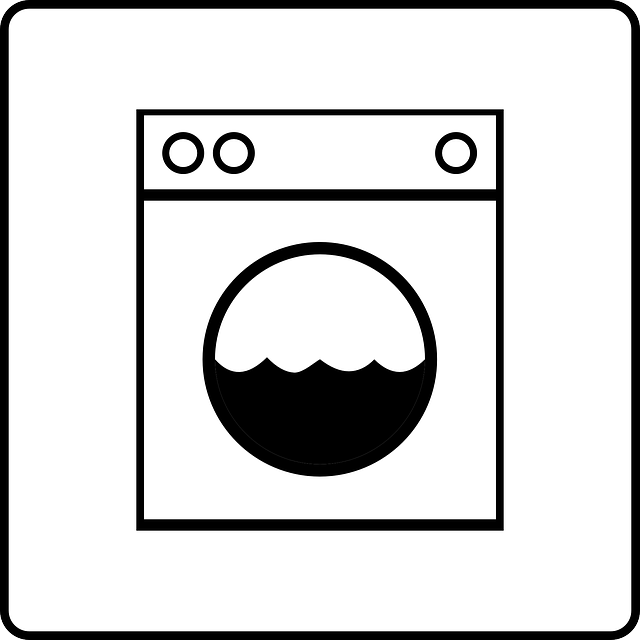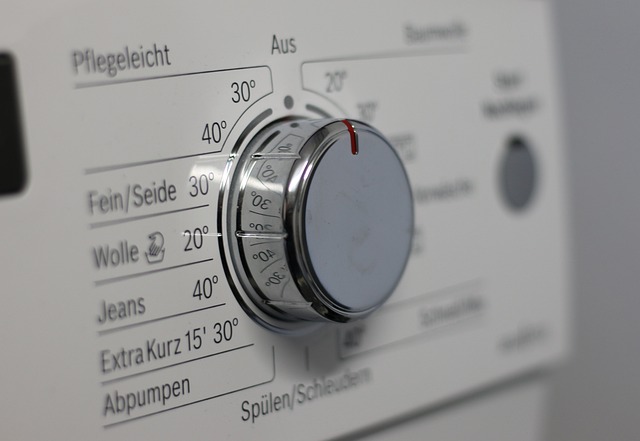The laundry appliance market is undergoing a dynamic transformation in 2024.
Consumers are increasingly seeking appliances that boast sustainability
features, smart functionality, and efficient cleaning capabilities. This shift
presents a lucrative opportunity for entrepreneurs looking to enter the laundry
appliance distribution business.
This comprehensive guide will equip you with the essential knowledge and
steps to launch a successful laundry appliance distribution company in 2024.

I. Essential Steps for Launching Your Laundry Appliance Distribution
Business
Building a thriving laundry appliance distribution business requires
meticulous planning and strategic execution. Here are the crucial initial
steps:
A. Market Research and Business Planning
· Market Research: Conduct thorough market research to
identify your target audience and understand the regional demand for different
laundry appliances. Analyze consumer preferences regarding features, price
points, and popular brands.
· Business Plan Development: Develop a comprehensive
business plan that outlines your target market, marketing strategy, financial
projections, and competitor analysis. This plan will not only guide your
business decisions but also serve as a valuable tool when seeking funding.
B. Establishing Your Business Entity
· Choose a Business Structure: Decide on the most suitable
legal structure for your business (sole proprietorship, LLC, etc.). Consider
factors like liability protection, tax implications, and ease of management when
making this decision.
· Obtain Licenses and Permits: Research and obtain all
necessary licenses and permits required to operate a business in your specific
region. This might involve permits for sales tax collection, business operation,
and waste disposal (for appliance recycling programs).
C. Securing Funding
Launching a distribution business requires capital for inventory,
warehousing, marketing, and operational expenses. Explore financing options such
as bank loans, securing investors, or using personal savings to fund your
venture. Tailor your funding request to align with your business plan and
projected needs.

II. Building Your Laundry Appliance Distribution Network
A. Selecting Reliable Suppliers
Partnering with reputable laundry appliance manufacturers is crucial for your
success. Here's how to find the right fit:
· Identify Potential Suppliers: Research and identify
established laundry appliance manufacturers with a proven track record of
quality and innovation. Look for companies that offer a diverse range of
products to cater to different customer segments.
· Negotiate Distribution Agreements: Once you've identified
potential suppliers, negotiate favorable distribution agreements that secure a
steady supply of in-demand products at competitive pricing terms. Secure clear
provisions outlining minimum order quantities, delivery schedules, and warranty
support.
Here is an guide to choose a good manufacturer of electric appliances
B. Building Relationships with Retailers
Strong relationships with retailers are essential for getting your laundry
appliances in front of potential customers. Here's how to cultivate successful
partnerships:
· Identify Target Retailers: Research and identify retailers
in your target market who cater to your chosen customer base. This could include
appliance stores, big-box retailers, or online marketplaces.
· Offer Value Proposition: Develop a value proposition that
highlights the benefits of partnering with you. This could include competitive
pricing, efficient delivery, excellent customer service, and co-operative
marketing initiatives.

III. Marketing and Sales Strategies for Laundry Appliance
Distributors
Developing a robust marketing and sales strategy is essential to get your
brand noticed and drive sales.
A. Developing a Winning Marketing Strategy
· Online Presence: Utilize online platforms like a company
website, social media channels, and industry publications to showcase your
product offerings and brand message. Target relevant keywords and utilize search
engine optimization (SEO) strategies to increase online visibility.
· Trade Shows and Events: Consider attending trade shows and
industry events focused on home appliances. This provides a valuable opportunity
to network with potential suppliers, retailers, and customers.
B. Implementing Effective Sales Techniques
· Sales Team Training: Train your sales team on the
technical specifications, features, and benefits of the laundry appliances you
distribute. Equip them with the knowledge to answer customer questions and
effectively address buying objections.
· Value-Added Services: Offer value-added services to
attract customers and differentiate yourself from competitors. This could
include product demonstrations in retail stores, installation support services,
and extended warranties.

IV. Operational Considerations for Laundry Appliance
Distributors
Efficient operations are critical for long-term success in the laundry
appliance distribution business. Here are key operational aspects to
consider:
A. Inventory Management
· Inventory Management System: Implement a robust inventory
management system to track stock levels, predict demand, and avoid overstocking
or understocking.
· Inventory Balance: Maintain a good balance between
stocking popular models and catering to niche markets with specialty appliances.
Consider offering customizable options to meet specific customer needs.
B. Logistics and Warehousing
· Warehousing: Secure adequate warehousing space to store
your inventory safely and efficiently. The location should be strategically
chosen, considering access to transportation routes and proximity to your target
market.
· Logistics Partners: Establish reliable logistics partners
to ensure timely and Ensure your partners offer cost-effective delivery
solutions for various appliance sizes and weights. Explore options for
white-glove delivery services for high-end appliances.
C. Customer Service Excellence
· Prioritize Support: Prioritize excellent customer service
by providing readily available support for both retailers and end users. This
could include a dedicated customer service hotline, online knowledge base, and
prompt response to inquiries.
· Long-Term Satisfaction: Address inquiries and requests
promptly and efficiently. Foster long-term customer satisfaction by offering
solutions and exceeding expectations. Building trust and loyalty will lead to
repeat business and positive word-of-mouth referrals.

V. The Future of Laundry Appliance Distribution: Trends to
Watch
The laundry appliance market is constantly evolving. Here are some key trends
to watch and adapt to in order to stay ahead of the curve:
· Smart Home Integration: Smart laundry appliances that
connect to Wi-Fi networks and allow for remote control and monitoring are
gaining traction. Distributors should consider offering a variety of smart
appliance options to cater to this growing demand.
· Focus on Energy Efficiency: Consumers are increasingly
environmentally conscious and seek energy-efficient appliances. Distributors
should prioritize partnerships with manufacturers offering high-efficiency
models with certifications like Energy Star.
· Sustainability Features: Laundry appliances with features
like water-saving technologies and eco-friendly materials are becoming more
popular. Highlighting these aspects can attract environmentally conscious
consumers.
· Direct-to-Consumer Sales: Manufacturers venturing into
direct-to-consumer sales models can impact traditional distribution channels.
Distributors should focus on offering unique value propositions and exceptional
service to maintain a competitive edge.
VI. Conclusion
Launching a laundry appliance distribution business in 2024 requires careful
planning, strategic partnerships, and a commitment to operational excellence. By
following the steps outlined in this guide, adapting to industry trends, and
prioritizing customer satisfaction, you can position your business for success
in this dynamic and rewarding market.
We hope this comprehensive guide has equipped you with the knowledge and
resources needed to launch your laundry appliance distribution business in 2024.
Remember, success in this industry hinges on a thorough understanding of the
market, building strong partnerships, and continuously adapting to evolving
consumer needs.


